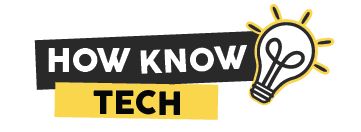
In recent years, the use of mobile apps for medical education has surged among medical students, healthcare workers, and even physicians. These apps provide a convenient and engaging platform for individuals to enhance their medical knowledge and skills. One such app that has gained significant popularity is DiagnosUs, a medical science learning app that combines gamification with real patient cases to challenge users and motivate their medical skills development.
The Rise of Medical Education Apps
The increasing adoption of mobile apps in the medical field is transforming the way medical knowledge is acquired and retained. These apps offer a range of features and tools that cater to the specific needs of medical professionals and students. With gamification techniques, users are incentivized to compete for cash prizes by earning high scores, making the learning process more engaging and enjoyable.
DiagnosUs, in particular, has become a go-to app for medical students, nurses, lab technicians, and physicians seeking to enhance their diagnostic skills. It offers a unique approach to teaching medical diagnosis by utilizing real patients’ X-rays and ultrasound images. The app’s user base consists of a diverse range of individuals, including medical professionals and those with a medical background.
Gamified Medical Learning with DiagnosUs
The main goal of DiagnosUs is to provide an engaging and dynamic platform for testing and improving medical knowledge. Through its gamified approach, users can not only enhance their diagnostic skills but also contribute to the development of machine learning algorithms. The app collects users’ results in labeling medical images and employs them in various medically-oriented projects.
The app’s success can be attributed to the expertise of its founder, Erik Duhaime. With a background in cooperation and collective intelligence, Duhaime found inspiration in the concept of the “wisdom of crowds” and sought to apply it to medical education. His wife’s experience in medical school further fueled his passion for creating a tool that could revolutionize the way medical knowledge is acquired.
Participatory Learning and the Power of Crowdsourcing
DiagnosUs harnesses the power of crowdsourcing to deliver highly accurate results in medical diagnosis. Duhaime conducted experiments involving laypeople and “semi-experts,” individuals with some level of expertise in a particular area. By aggregating and analyzing their opinions and performance, he was able to demonstrate that groups of semi-experts could outperform individual board-certified professionals.
Building on this concept, Duhaime integrated techniques similar to those used in the Duolingo language-learning app, which aggregates the opinions of unskilled learners to provide translation services. This approach proved to be effective in the medical field as well, with DiagnosUs leveraging the collective expertise of its users to analyze cases and provide accurate diagnoses.
Centaur Labs: Bridging the Gap in Medical Data Labeling
DiagnosUs is not only a learning tool but also a sourcing channel for Centaur Labs, a company founded by Duhaime in 2017. Centaur Labs specializes in labeling large-scale medical and scientific datasets, enabling AI developers and data scientists to build and improve their models more efficiently. The healthcare industry generates a vast amount of unstructured or poorly annotated data, making the services provided by Centaur Labs invaluable.
Realizing the Vision: How DiagnosUs Works
The credibility and accuracy of DiagnosUs are crucial to its success. The app ensures this by aligning questions to elicit either/or responses based on learned visual recognition or data. Gold standards are set for each client’s labeling project, involving the collaboration of three physicians or clinicians well-trained in the specific medical area. This rigorous process guarantees the validity of the images used in the app’s questioning process.
DiagnosUs also leverages digital technology to train users in pattern recognition. For example, it utilizes Eko Health’s digital stethoscope recordings to teach users to identify heart and lung sounds. By labeling a subset of recordings and using them to train users, the app identifies top performers and continuously measures their performance through app questions.
Unlocking the Potential of Medical Students
One of the primary beneficiaries of the DiagnosUs app is medical students. Traditional medical education often falls short in providing practical skills training, focusing more on theoretical knowledge. DiagnosUs fills this gap by offering exposure to a wide range of medical tasks and cases that are typically not covered in undergraduate or medical school curricula.
Through the app, medical students can gain valuable experience in interpreting ECGs, chest X-rays, and other essential diagnostic skills. The gamified approach, coupled with the opportunity to compete for cash prizes, motivates students to actively participate and continuously improve their skills.
Success Stories and the Power of Practice
The effectiveness of the DiagnosUs app has been demonstrated through numerous success stories. Users from various backgrounds, including medical students and doctors, have achieved impressive results through consistent practice and exposure to hundreds of cases. In some instances, users have even outperformed individual experts, highlighting the app’s potential in training and testing medical knowledge.
One notable example is a woman from the Philippines who consistently ranked among the top performers in accurately diagnosing ultrasound images. Her dedication and practice allowed her to surpass the skills of doctors and medical students in this specific task. This success story showcases the app’s capability to teach and reward users for their efforts.
The Future of Medical Education
The rise of mobile apps like DiagnosUs represents a significant shift in medical education. By integrating gamification and crowdsourcing techniques, these apps provide a dynamic and engaging learning experience. They bridge the gap between theoretical knowledge and practical skills, empowering medical professionals and students to enhance their diagnostic abilities.
As technology continues to advance, the potential for apps like DiagnosUs to contribute to the development of machine learning algorithms and improve medical data labeling is immense. The collaboration between users, medical professionals, and companies like Centaur Labs creates a symbiotic relationship that benefits all parties involved.

